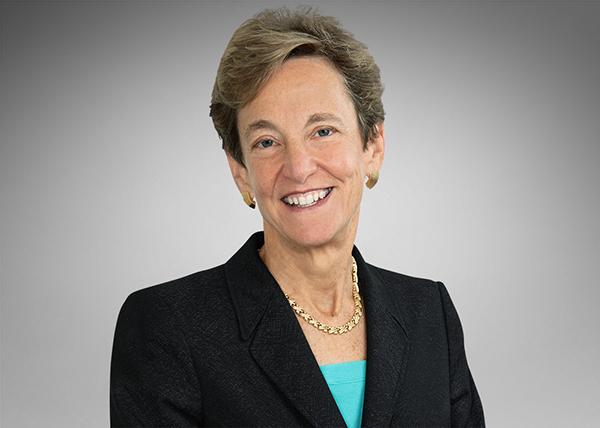On January 18, 2021, then President-Elect Joseph Biden confirmed earlier reports that he would nominate Rohit Chopra to serve as Director of the Consumer Financial Protection Bureau (“CFPB” or the “Bureau”). Chopra is currently a Commissioner at the Federal Trade Commission (“FTC”) and previously served as a CFPB Assistant Director and Student Loan Ombudsman. Chopra is widely regarded as an ally of Senator Elizabeth Warren (D-Ma.), who praised Chopra as “a fearless champion for consumers” and noted his appointment meant that “big change is coming” to the CFPB.
In this client alert, we look through the considerable written record of Chopra’s views to better understand the approach he may take to his new role as CFPB Director. In short, this record strongly suggests that a CFPB Director Chopra would take a vigorous stance on enforcement, including more fulsome redress for consumers, higher civil money penalties, and a focus on repeat offenders. The record also provides some guidance on Chopra’s view on substantive legal issues, including on unfair, deceptive, or abusive acts and practices, student lending, and debt collection, which may foreshadow regulatory developments at the Bureau. Finally, the record makes clear that Chopra is wary of the “revolving door” between government service and private sector employment.
Vigorous Enforcement
Chopra’s writings indicate his belief in vigorous enforcement of the law. For example, in a statement on the tenth anniversary of the Dodd-Frank Act, Chopra stated:
If we want a marketplace that works, the public must ensure that regulators use every tool available to rein in firms that abuse their power and break the law. We learned the hard way that the cost of inaction is too high. We cannot repeat these mistakes again . . . . Many of the federal regulators seemed more interested in keeping these financial firms profitable and happy, rather than protecting taxpayers from expensive bailouts and safeguarding consumers from financial crimes.
Accountability for Misconduct
As an FTC Commissioner, Chopra frequently issued dissenting opinions calling for additional measures to hold corporations responsible for misconduct and to prevent future violations of law. For example, Chopra criticized one high-profile settlement as doing “little to change the business model or practices that led to the recidivism” and “impos[ing] no meaningful changes to the company’s structure or financial incentives, which led to these violations.” In other matters, Chopra dissented to “no-fault proposed orders,” and proposed settlements with “no other meaningful accountability.”
Relatedly, Chopra has expressed skepticism of the use of monitors to assess compliance on a going-forward basis. In one statement, Chopra questioned “whether those assessments are truly effective when it comes to deterring or uncovering misconduct.” In another statement, he wrote, “The FTC . . . should not place too much faith in the efficacy of these third parties.”
Full Redress and Significant Penalties
During his time at the FTC, Chopra established a record of objecting to the amount of redress awarded to consumers and criticizing the lack of monetary penalties imposed. For example, Chopra has said that the FTC’s enforcement strategy on debt collection matters “frequently leads to outcomes where victims receive only a miniscule percentage of their losses—or even nothing at all” and criticized settlements for “not making the victim whole.” Chopra often dissented to settlements on the grounds that they included “no help for affected parties” or “no money,” and asserted that the FTC’s “weak” settlements act as setbacks for the FTC’s credibility. As the new Director of the CFPB, we expect Chopra to insist that consumers are made whole through redress and to seek substantial civil monetary penalties.
Repeat Offenders
In May 2018, Chopra sent a memorandum to Commission Staff and Commissioners with proposals regarding “repeat offenders.” Chopra argued that “[w]hen companies violate orders, this is usually the result of serious management dysfunction, a calculated risk that the payoff of skirting the law is worth the expected consequences, or both” and that “[e]ither of these explanations requires serious remedies that address the underlying issues.” To address these issues, Chopra proposed “changing incentives by seeking monetary remedies” and “seek[ing] to correct both the miscalibrated incentives and the management deficiencies through structural remedies, including the dismissal of senior management and board directors, changes to executive compensation, outright bans on adjacent business practices, and closure of appropriate business lines.”
Pushback at the FTC
Chopra’s approach to enforcement has been criticized by other FTC Commissioners, including the FTC Chair, who expressed “concern[]” for a particular “dissent’s disregard for facts and law.” The Chair went on to say:
His dissent makes misleading claims about the staff’s investigation, the state of competition in the pharmaceutical industry, and the Commission’s enforcement record in this industry. It relies on false assertions, misapplication of law, and specious logic. It appears to have fully embraced the adage to “never let the truth get in the way of a good story” and engages in unbounded speculation, while criticizing forecasts based on rigorous investigation and grounded in evidence.
Substantive Areas of Focus
Chopra’s areas of focus at the FTC and as CFPB Student Loan Ombudsman may provide some insight into his likely focus as CFPB Director.
UDAAP
We expect that, as Director, Chopra would rely heavily on the prohibition on unfair, deceptive, and abusive acts and practices (“UDAAP”) in the Dodd-Frank Act. As an FTC Commissioner, Chopra has frequently invoked Section 5 of the FTC Act, which prohibits unfair acts or practices. Chopra has particularly focused on deceptive conduct, including in advertising of consumer products or services. As Director, Chopra may place new emphasis on the prohibition on “abusive” conduct found in the Dodd-Frank Act but not in the FTC Act. Such an emphasis would be consistent with Chopra’s focus on the need to protect vulnerable populations, including the elderly.
Student Lending and Servicing
In light of Chopra’s prior experience as the CFPB Student Loan Ombudsman, we would expect student lending and servicing to be at the top of his agenda as Director. While he was at the CFPB, it was reported that he “used his public stage to push student-loan companies into improving their treatment of borrowers” using a “style of applying pressure through public means—a big departure from the more measured style of other financial regulators.”
Chopra more recently set out his views on the importance of protecting student borrowers in a comment letter responding to the CFPB’s proposed Debt Collection Rule:
When it comes to the companies that collect student loan payments, consumers have little to no market power. Loan servicers and debt collectors work on behalf of lenders and creditors, not on behalf of borrowers. Despite the wide availability of affordable repayment plans, there are more than 9 million borrowers in default on their student loans, with many more in severe delinquency. Student loan default deeply affects Americans of all ages. As the industry’s primary regulator, the CFPB must ensure that any rulemaking keeps student loan borrowers in mind.
These concerns may lead Chopra to reverse actions taken by the Bureau in recent years, including the disbanding of the Bureau’s Office of Student and Young Consumers and the abandoning of plans to promulgate student loan servicing regulations, and to a renewed emphasis on enforcement actions relating to student loans.
Fair Lending and the Use of Artificial Intelligence
Chopra has also spoken out on fair lending issues, and, in particular, the potential for discrimination through the use of artificial intelligence in underwriting. For example, at a Fair Housing Alliance conference, Chopra stated:
While machines crunching numbers might seem capable of taking human bias out of the equation, they can’t. More and more of us are asking whether we are doing enough to understand the bias that is coded into the machines And if not, are we making discrimination, including housing discrimination, even harder to detect?
Chopra has also signaled strong support for disparate impact analysis in fair lending, stating “[g]iven the difficulty of uncovering direct evidence of discriminatory intent, disparate impact analysis is critical for detecting potentially unlawful discrimination.”
Technology and Big Data
Chopra’s skepticism regarding the use of artificial intelligence appears to extend to technology more generally. He has expressed caution regarding the effect of technology and big data on consumers, stating “[a]buse and misuse of personal data is an urgent concern for our economy, society, and national security.” He has also warned that “we need to investigate how technology platforms may be a threat to our civil rights and the goals of fairness we seek in our society.”
Debt Collection
We also expect Chopra to focus on debt collection. As noted above, Chopra submitted a comment letter in response to the CFPB’s proposed Debt Collection Rule, in which he urged the Bureau to consider the proposed rule’s impact on student loan borrowers and their families. Further, in an FTC settlement with a debt collector, Chopra commented on the tools available to the CFPB with respect to debt collection:
Here, the CFPB has important tools that could significantly reform this market. Several years ago, when the CFPB launched a rulemaking on third-party debt collection, the agency indicated that it planned to address first-party debt collection on a separate track. Despite support for this approach, it never did. Commonsense rules for ensuring accuracy in the collection and sale of debt would cut off at the source abuses like those seen in this case . . . .
Protections for Small Businesses
Protecting small businesses has also been a priority for Chopra during his time at the FTC. He reportedly stated that “[t]he U.S. Federal Trade Commission should scrutinize potentially abusive terms in small-business lending contracts, including the use of a legal instrument known as a confession of judgment.” Chopra has also expressed concern regarding the impact of COVID-19 on small businesses:
Small businesses across America are struggling to stay afloat due to the impact of COVID-19, and millions are expected to fail. Unfortunately, many small businesses were unable to access the Paycheck Protection Program (PPP). Our nation’s largest banks have been accused of steering limited PPP dollars to their richest clients, shutting out many local businesses. Minority-owned businesses are especially struggling to access PPP and other forms of credit.
He also stated that “[a]ggressive enforcement that promotes competition and protects consumers and honest businesses, complemented by rigorous analysis of the marketplace to eradicate unfair contract terms and business practices across sectors of the economy, is essential.”
Wariness of the “Revolving Door”
Chopra’s writings also express concern with government employment of people with private sector experience. In May 2018, Chopra co-authored a report for the Roosevelt Institute’s The Great Democracy Initiative, entitled, “Unstacking the Deck: A New Agenda to Tame Corruption in Washington.” The report provided recommendations “[t]o root out corruption and restore faith and trust in our government.” In this report, Chopra identified as a significant issue “the revolving door—where individuals move between government service and special interests,” arguing that it “contributes to ‘cultural capture,’ where officials in federal government agencies see their interests as more closely aligned with the entities they regulate, rather than the interests of the public.”
Chopra recommends restrictions on “certain individuals from activities that would benefit their prior employers” and “bann[ing] certain individuals from occupying senior government positions altogether.” Chopra also recommends “[t]ighten[ing] post-employment restrictions for employees departing public service” and “[c]racking down on ‘burrowing’ by political appointees into career positions.” In addition, Chopra would “[f]orbid corporate bonuses for government service” and “[e]nact a lifetime ban on lobbying for senior executive branch officials and members of Congress.”
Final Thoughts
Chopra has a voluminous record, and the foregoing sets forth some clear themes to his speeches and writings. However, it bears noting that Chopra will be stepping into a new role as CFPB Director after serving in roles, including as student loan ombudsman and as part of the Democratic minority at the FTC, which are particularly suited to taking a critical eye to decisions made by others. Accordingly, we may see new facets of Chopra’s policy views and leadership style as he takes on responsibility for the CFPB.
If you have any questions concerning the material discussed in this client alert, please contact the following members of our Financial Services practice.
Back
Back







